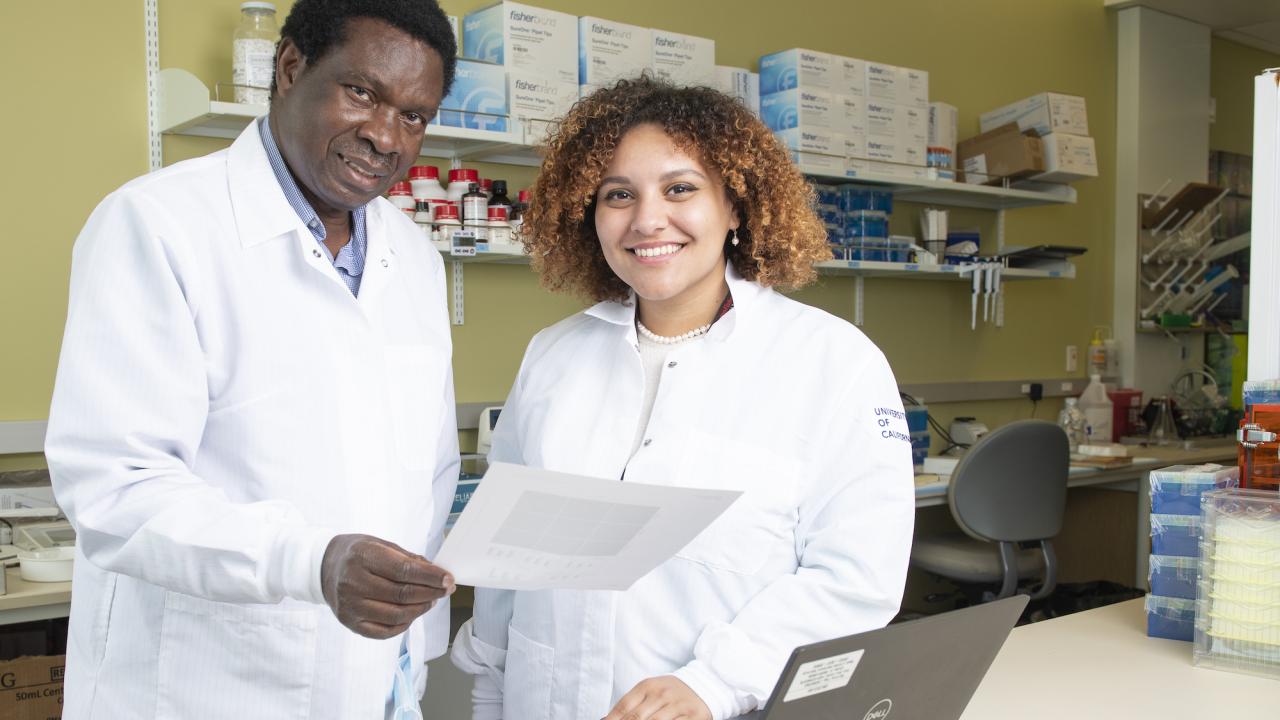
Undergraduates Gain Mentoring and Skills Through Toxicology Training Program
Want to make a difference in public health and the environment? Then you may want to check out the one-year Toxicology Mentoring and Skills Development Training Program (ToxMSDT). This career development and training program funded by the National Institute of Health (NIH) is open to STEM undergraduate students from diverse underrepresented backgrounds across the country.
Cristina Santana was pursuing a B.S. in Biology at Iowa State University several years ago when she came across a job posting for a research assistant in an environmental toxicology lab with Dr. Wilson Rumbeiha.
“I really didn’t know much about toxicology at first,” said Santana, who is originally from Puerto Rico. “I thought I would go into medicine, but once I began understanding what and why we were doing and how our research related to the bigger picture of public health, I knew this was the right path for me.”
Santana joined the national cohort of ToxMSDT students in 2017-18 during her last year of undergraduate training and it helped determine her next steps of pursuing a Ph.D. in the field with Rumbeiha and his lab. When Rumbeiha moved to the UC Davis School of Veterinary Medicine as a professor of One Environmental Health Toxicology, Santana followed to continue her doctoral studies on hydrogen sulfide poisoning—a toxic gas with a rotten egg smell. In high concentrations, it can be lethal. Hydrogen sulfide can be found near volcanic springs or in decomposing fecal matter in agricultural settings. Santana is working with rodent models to understand the respiratory effects from exposure and what happens in the brain and lungs.
“With research, I feel like I’m helping people by assisting doctors with data, which is a backbone of medicine,” said Santana, who recently completed her dissertation. “Without scientific research, you don’t have medicine. I really care about One Health issues in public health and the environment. My degree in toxicology will help me make a difference.”
Santana plans to go into industry with the goal of improving the health of people in communities by having a role in regulatory toxicology.
“Mentoring is a very important part of this program and helped me clarify my career path,” Santana said. “A diverse workforce helps to contribute to the greater society.”
The ToxMSDT program is housed in the UC Davis Department of Molecular Biosciences in the School of Veterinary Medicine. Other members of the consortium are the Society of Toxicology, Iowa State University, Tuskegee University, The Ohio State University, and Michigan State University.
The program is mostly virtual. Each student mentee is matched 1:1 with volunteer mentors from industry, academia, government, or nonprofit entities from across the country. Program components include the self-directed completion of six learning-modules providing foundational knowledge in toxicology ranging from ‘Principles of Toxicology’ to ‘Applied Systems Toxicology’. The expected outcome of this training and mentoring program is that graduating students will be trained in toxicology by professionals to competitively join graduate training programs in toxicology.
Applications for the 2022-23 cohort are due April 30, 2022. More information can be found here, or by contacting Pia van Benthem, pvanbenthem@ucdavis.edu.
